Hemorrhoids Nutritional Guide
Hemorrhoids is the inflammation of veins in the rectum/or anus that can cause severe pain. This can happen due to extraneous and internal pressures such as stress, obesity, and chronic constipation as well as poor health and nutrition. In order to properly care for such a tender condition, it is especially important to have the right tools available. The following are a list of foods that contain nutrients that will help lessen inflammation as well as pain during the process by providing some of the best nutrients that our bodies need.
Proteins
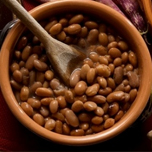
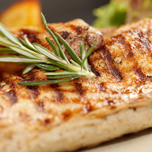
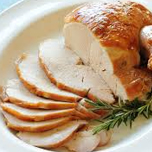
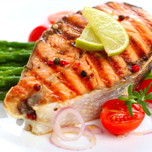
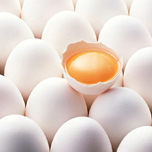
Beans
Rich in fiber, these legume family members contain important nutrients such as folic acid, iron, and magnesium, These can be a great addition to salads, stews, and soups. Some great examples are garbanzo beans, kidney beans, and black beans.
Chicken
Choose boneless, skinless chicken breast--remember that organic is key--and free range chicken as this will help serotonin levels. Avoid fried chicken for this will do exactly the opposite.
Turkey
Choose white meat over dark meat for a good source of lean protein. Stay away from ground turkey that isn’t made with turkey breast as other ground turkey contain undesirable parts.
Fish
Choose fish such as salmon, herring, and tilapia to improve Omega-3 fatty acids intake. Remember, choose fish that is labeled as wild-cut as other fish contain unwanted chemicals and hormones that aren’t good for your body.
Egg Whites
High in protein and low in calories, egg whites contain no fat and make an excellent snack or meal that can keep you satisfied. Remember to always look for organic-free range eggs when shopping.
Fruits and Vegetables
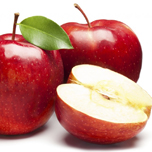
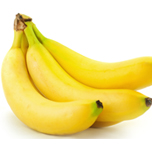
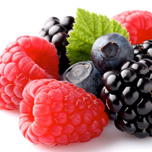
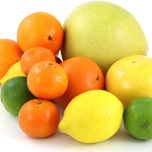
Apples
This fruit is full of many vitamins and nutrients as well as fiber that helps lower levels of “bad” (LDL) cholesterol. Apples are also known for their antiviral and antibacterial properties making them an excellent immune strengthener.
Bannanas
These fruits are a good source of vitamin B6, which is essential for the function of the immune system. Bananas are also rich in Vitamin C and potassium.
Berries
Berries are rich in antioxidants as well as antibacterial agents that help the body fight off harmful illnesses. Try cranberries, blackberries, blueberries or blackcurrants and raspberries to add variety to your berry intake.
Citrus Fruit
These colorful fruits are full of many antioxidants including vitamin C, which helps stimulate the immune system. Grapefruit, lemon, and lime are highly recommended when dealing with chronic infections.
Coconut
The fresh meat of the coconut is rich in dietary fiber and contains properties that help clean out mucus from the throat.
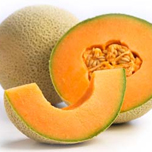
Goji Berries
Known for its high antioxidant content, this fruit is one of the best foods to include in your daily consumption as it helps strengthen the immune system and contains other beneficial health benefits.
Grape
Full of antioxidants, these purple or green fruits make delicious snacks and additions to meals. (Note: Wine and other alcoholic beverages are not good for the body. Although grapes themselves contain many nutritional benefits, the alcohol in wine creates a negative effect to the body’s overall function--especially to those experiencing chronic stress and other related illnesses.)
Mango
This fruit is full of many immune building nutrients including beta carotene, calcium, and potassium as well as vitamins A, B, C.
Melon
Cantaloupe, honeydew, and watermelon are excellent examples and are good sources of minerals, vitamin C, beta carotene, and folic acid along with compounds that help thin the blood and lower blood pressure. These tasty treats can be added to smoothies, fruit salads, and meals as well as enjoyed raw.
Papaya
This fruit is a great source of bioflavonoid, which is an antioxidant that helps absorb Vitamin C.
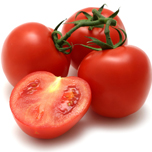
Peaches
Due to its rich content of vitamin A and beta carotene, this fruit makes a simple and easy nutritious snack. Peaches are also an excellent source of dietary fibers and minerals.
Pears
Pears are full of many nutrients as well as fiber that helps lower “bad” (LDL) cholesterol.
Pineapple
This powerhouse of a fruit is full of many nutrients that aid in the strengthening of the immune system. These nutrients include beta carotene, vitamin C, manganese, and potassium. Pineapple is also best known for its antiseptic and anti-inflammatory properties.
Pomegranates
Pomegranates are an excellent source of Punicalagin, which gives it its antioxidant benefits.
Tomato
These red fruits are full of nutrients such as iron, vitamin E, and vitamin C along with other antioxidants.
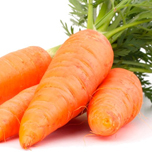
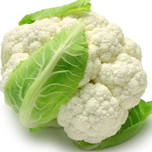
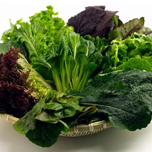
Beet
Beets are full of all types of nutritional benefits, including potassium, iron, and folic acid, which helps reduce inflammation and fortify the immune system as well as the beta carotene included in this wonderful vegetable. Beets may be enjoyed raw or pickled--when purchasing, look for a healthy brand.
Bell Pepper
Yellow, green, and red bell peppers are rich in vitamin C as well as other nutrients such as carotenoids, which helps fortify the immune system.
Carrot
Orange and sweet, this vegetable is rich in potassium and fiber, which help in digestion. Carrots are also an excellent source of zinc, beta carotene, and carotenoid, which helps create vitamin A in the body making carrots an excellent way to strengthen the immune system. One of the best ways to get all of the nutritional benefits of carrots is through the daily consumption of freshly juiced organic carrots.
Cauliflower
Cauliflower is an excellent source of pantothenic acid, which is an anti-stress nutrient.
Dark Leafy Greens
When in the process of strengthening the immune system or overcoming an illness, it is critical to include these vegetables in your eating habits as they contain many beneficial nutrients. These nutrients include, vitamins K, C, and E along with fiber, which helps in digestion; dark leafy greens are great sources of antioxidants. Spinach, kale, collards, chard, and bok choy are all excellent examples.
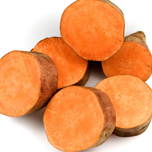
Mushroom
Mushrooms are an excellent source of Vitamin D and contain many other health benefits, such as lowering blood cholesterol and aiding in stimulating the immune system as well as promoting good eyesight.
Onion & Garlic
Full of many benefits, these allium family members contain a variety of vitamins and minerals as well as properties that help fight off infectious illnesses.
Radish
Radishes contain many properties that help prevent illness which come from its vitamin and mineral content including the presence of vitamin C, potassium, and iron. This vegetable is also known for its high cellulose and sulfur content.
Squash
Squash is an excellent source of beta carotene, which helps oxygenate the blood; it also contains many other nutrients such as fiber, vitamin C, and carotenoids, which aids in the stimulation of the immune system. This diverse vegetable can be easily added to salads and stir fries. Some great examples are zucchini, butternut squash, and summer squash.
Sweet Potatoes & Yams
Sweet Potatoes and yams are rich in vitamins A, B, C, and E along with beta carotene, which all aid the body when undergoing high amounts of stress and chronic illness. These potatoes make excellent snacks and additions to meals.
Whole Grains and Seeds
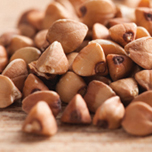
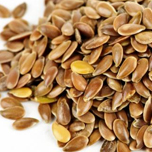
Buckwheat
Rich in rutin (a flavonoid and antioxidant), buckwheat improves blood circulation, lowers blood pressure, and reduces hypertension. This can be used as a cereal and can be included in baked goods.
Flax Seed
High in fiber and Omega-3 fatty acids, flax seeds is full of vitamins, phytonutrients, and protein. Its health benefits include support to the immune system, excellent cholesterol levels and digestion. When buying, remember to only purchase whole flax seeds and grind them as you go to avoid rancidity.
Hemp
Hemp contains protein and can be added to desserts as well as cereal with hemp milk.
Kamut
Kamut is full of many nutrients including--vitamins E, B1, and B2 along with selenium, magnesium, phosphorous, and zinc. This can be best found in any local health food store in bulk.
Millet
This grain is packed with amino acids, phosphorous, iron, potassium, and manganese. Its high silica contents also helps promote good blood cholesterol. Millet can make an excellent addition to cereals and desserts.
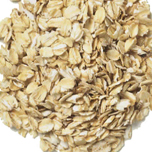
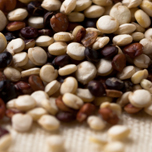
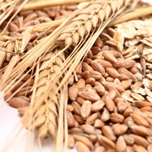
Oat
This versatile grain can be added to smoothies and replace breadcrumbs along with making a great breakfast selection. Be sure to stay away from instant flavored oatmeal as these contain large amounts of refined sugar and other added unwanted ingredients. Oats are an excellent choice because they help to regulate blood glucose and insulin levels, making you feel fuller for a longer period of time.
Quinoa
Quinoa is a great source of nutrients--calcium, phosphorus, and iron being a part of it as well as vitamin E and most of the vitamins B--it is also contains protein. This versatile seed can replace oats for oatmeal, be served as a salad, and can be added to thicken soups.
Spelt
Spelt is a complex carbohydrate, provides energy, and contains fiber.
Whole Grain Wheat
Whole wheat contains fiber along with an assortment of vitamins and minerals. When buying, remember to buy only wheat labeled as whole grain as other wheat do not have the same nutritional benefits.
*To access the best health benefits, look for products labeled sprouted
Healthy Fats
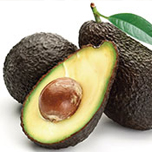

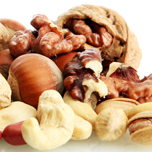
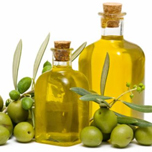
Avocado
Full of monounsaturated fats or “healthy fats”, the avocado has the ability to lower blood cholesterol. *Those taking blood thinners should check with their doctor before eating this fruit as it may conflict with medications.
Coconut Oil
This special oil contains Medium-chain fatty acids which are necessary for our body’s daily functions and has properties that make it able to not produce dangerous trans fatty acids. This can be spread on breads and added to any desserts. For the best health benefits, look for the coconut oil labeled as cold-pressed virgin.
Flax Oil
Flaxseed oil is rich in Omega-3 fatty acids, which is important for the human body. When shopping for flaxseed oil, remember to choose oil labeled with lignan and is the refrigerated kind.
Nuts
Nuts contain healthy fats and protein as well as magnesium and fiber. Be sure to eat unsalted raw nuts which contain no added ingredients. Nuts are also very easy to snack on so be sure to watch consumption as too much is not ideal if you are trying to lose weight. A reasonable amount is a scant handful.
Olive Oil
Rich in healthy fats, olive oil also aids in reducing LDL cholesterol and raising HDL (“good”) cholesterol. When buying, be sure to purchase oil labeled as extra virgin-cold pressed as it contains more antioxidants than olive oil not labeled as cold pressed. Be sure to consume in moderation.
Seeds
Raw sunflower, pumpkin, and sesame seeds are excellent examples as they have a high content of vitamin E and Magnesium, both of which help the immune system--magnesium has also been shown to relax nerve cells.
Sweeteners
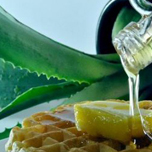
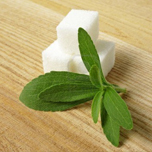
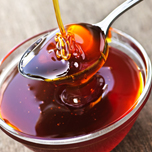
Agave
This syrup is sweeter than honey but is low GI. Agave works well in baked goods but should also be used in moderation.
Coconut Sugar
Coconut sugar is full of many nutrients such as nitrogen, phosphorous, potassium, and iron. This sweetener can be easily substituted in for white sugar--when substituting, substitute on a one to one ratio basis. (ex. 1 tbsp. white sugar= 1 tbsp. coconut sugar)
Dates
Dates are full of all sorts of vitamins and minerals including potassium, iron, and sulfur. Due to the dates’ texture and shape, the best way to add dates to desserts or smoothies is by blending them before adding.
Stevia
This sweetener comes from the stevia leaf which is naturally sweet. This can be used in any foods or drinks. It is so low on the glycemic index it will not affect blood sugar levels. Remember that a little bit goes a long way with stevia.
Yakon Syrup
While making an excellent tasting sweetener, yacon syrup contains many health benefits including the regulation of blood sugar levels, the lowering of blood pressure, and strengthening of the immune system.
Coconut Water
Coconut water is full of all sorts of minerals including the B vitamins, potassium, and the trace minerals. Those suffering from chronic stress are in special need of this water as many critical vitamins are lost during chronic stress.
Kefir
This probiotic is highly recommended as it helps maintain and create healthy intestinal flora.
Turmeric
Turmeric is an excellent spice that helps reduces inflammation and aid in the calming of digestive problems.
Ginger
This root is best known for being antiseptic as well as a helper in stimulating the digestive system. Ginger is also a great source of zinc and copper. Be sure to consume in moderation.
©2021 Phytotherapi. All rights reserved.
